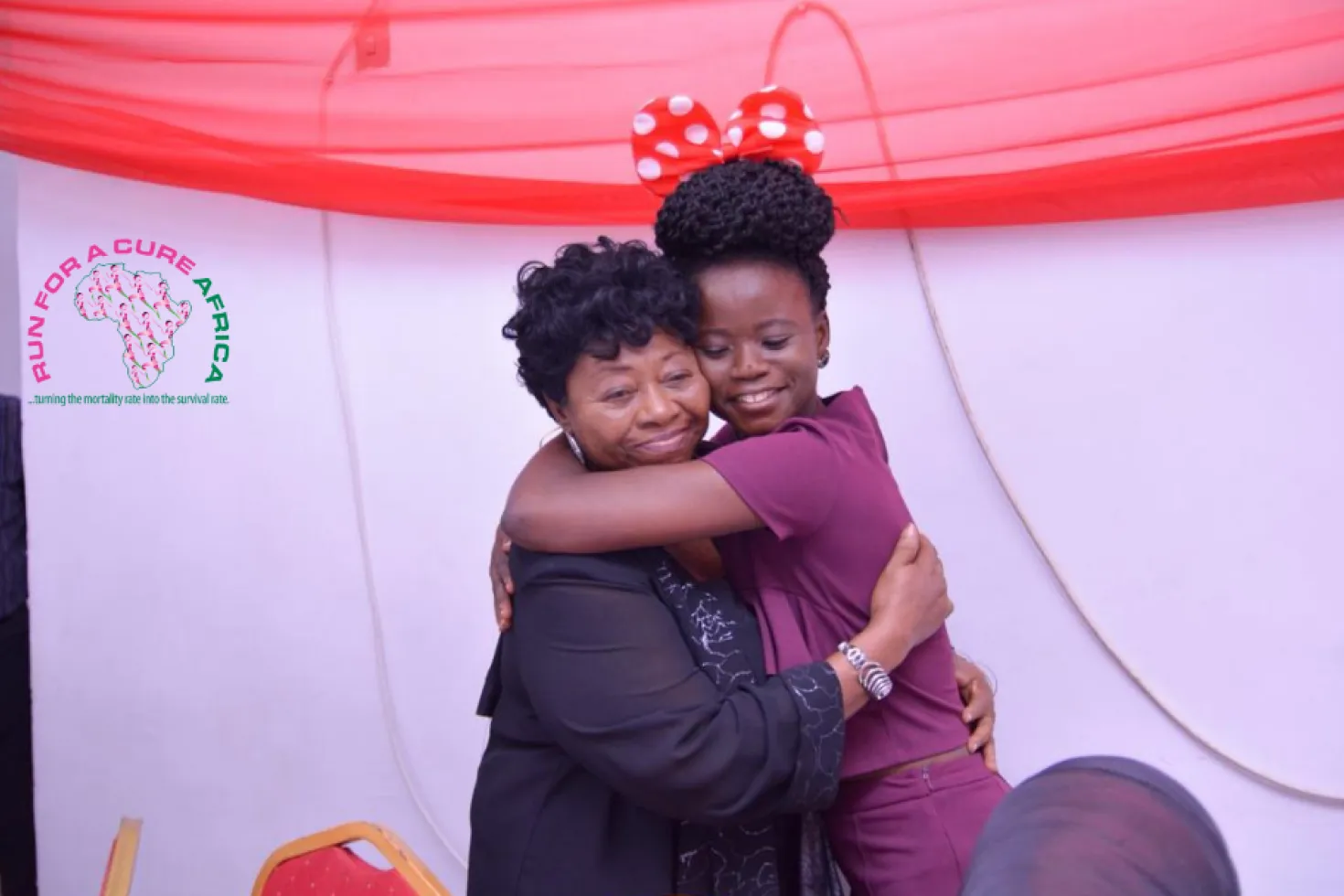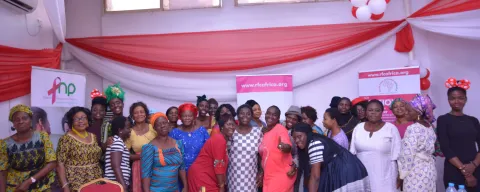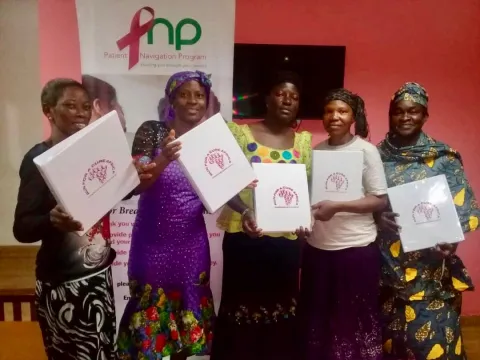Improving quality of life for metastatic breast cancer patients in Nigeria

Context
Delayed presentation and diagnosis of breast cancer is common in sub-Saharan African countries and has been documented in Nigeria specifically through several studies.[1] Furthermore, individuals with advanced breast cancer do not have the time or strength to deal with hospital strikes, issues accessing treatments or the lack of clarity regarding the next steps in the treatment journey. Run For a Cure Africa (RFCA) aims to reduce the stress and confusion of a metastatic breast cancer (MBC) diagnosis for individuals in Nigeria. Through the MetaPink programme, RFCA sought to address these challenges and to empower patients to improve their quality of life.

RFCA’s vision is to convert the breast cancer mortality rate of 90% in Nigeria, into a survival rate of 99%. Composed of a group of people directly or indirectly affected by breast cancer, RFCA’s staff have been dedicated to lessening the impact of this disease in their community since 2010.
Project description

In 2017, RFCA was selected as one of the twenty organisations to benefit from a SPARC MBC Challenge grant with their project that aimed to provide education and support to MBC patients.
Their project, called the MetaPink Programme, was designed to alleviate the stress and confusion of battling breast cancer for patients at the Lagos University Teaching Hospital (LUTH) and individuals in surrounding states through support groups, patient navigation and education sessions.
The project started with the enrolment of individuals with metastatic disease from the Breast Clinic at LUTH. Each individual entering the MetaPink programme were requested to sign a consent form and received a starter pack explaining the programme. Patient navigators subsequently reviewed the individual survivorship care plan with the MBC patients enrolled in the programme. Finally, patients were given access to the monthly support group sessions organised by RFCA, receiving periodical and individual follow-up through in-person visits or phone calls to ensure the programme responded to their needs and helped support an improved quality of life.
Impact

Through the MetaPink programme, RFCA is running a monthly support group providing emotional, educational and spiritual support to an average of 20 individuals per session. Speakers are invited to share information on a different topic in each session. As a result of these support groups, women reported lower levels of anxiety and specifically cited one of these themes of the support groups, “beauty through breast cancer” as playing a role in this. Individuals also reported a greater understanding of their disease and highlighted that the groups had helped them to develop self-help skills.
In addition to the support groups, individuals enrolled in the programme also had the option of meeting privately with an oncologist to discuss and understand their diagnosis more fully, which is an opportunity rarely offered to patients in the current health system. To strengthen connections and facilitate the building of a supportive community through the groups, a WhatsApp group was created and monitored by a patient navigator. This gave access to information and support between support group sessions. Finally, RFCA established a guide for MBC patients and a database of networks to provide alternative resources for care and support.
“Working with the patient in the support group has helped me understand the different levels of needs and how to approach them. It is a learning experience because there are so many gaps in the patients experience, the support group gives a platform to be a part of a greater good.”
Patient Navigator, Run For a Cure Africa.

Lagos hospital served as the headquarters for the support group programme, which proved convenient for patients and doctors alike. It is not only the largest public hospital in Lagos, but patients could easily schedule other appointments at the hospital when they came for the support groups.
Furthermore, through the networking opportunities available in the SPARC programme, RFCA met with the creators of the “Know your Lemons” campaign and have subsequently initiated a collaboration with them. At the World Cancer Congress in 2018, RFCA won the Astellas 2018 Grand Prize. This will contribute financial support (USD 50k) for an educational audio series for breast cancer patients, further strengthening the MetaPink programme.
RFCA also plans to explore using the support groups for diversional therapy (leisure and recreational experiences) and the development of new skills or trade (ex: soap making, head-scarf tying), in order to teach the participants or caregivers a skill that could be monetised in order to contribute to the costs of treatment.
More
- Organisation’s website: Run for a Cure Africa
- Radio programme: "Patient Nagivator" a ten minute radio drama
- Social media: Run for a Cure Africa Facebook page
References
[1] Jedy-Agba E, McCormack V, Adebamowo C, Dos-Santos-Silva I. Stage at diagnosis of breast cancer in sub-Saharan Africa: a systematic review and meta-analysis. Lancet Glob Health. 2016;4(12):e923–e935. doi:10.1016/S2214-109X(16)30259-5.
(Information from the project description and context is compiled from the SPARC reports)
Last update
Friday 03 February 2023